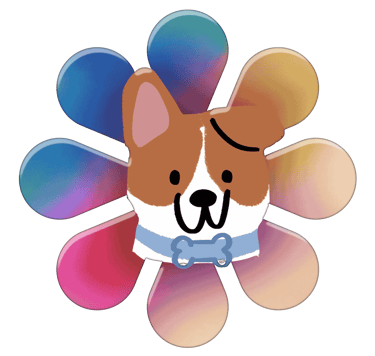Dogs sneeze for reasons as mild as dust or as serious as nasal tumours. Tracking how often it happens, and what it looks like, is key to knowing when to act.
Why check out this article?
Our Top 10 must-knows about dog sneezing








Normal Response: Dogs sneeze to clear their nasal passages. One-off sneezes, especially after play, dust exposure or sniffing grass, usually don’t need any intervention at all.
Reverse Sneezing: Sudden snorting that sounds scary but clears quickly is called reverse sneezing - it’s often harmless and more common in small breeds or excited dogs.
Allergy-Symptoms: If your dog sneezes daily and has itchy skin or watery eyes, seasonal allergies or dust mites could be to blame - especially in spring or dry winter homes.
Nasal Obstruction: Dogs that paw at one nostril, sneeze violently, or have discharge may have something stuck inside their nose - seeds, grass, or even a tiny insect.
Tooth Infection: A bad upper canine tooth can create a fistula into the sinuses, causing persistent sneezing and thick, sometimes foul-smelling nasal discharge on one side.
Infectious Cause: Sneezing with mucus, fever, or coughing suggests viral or bacterial infection - especially after dog park visits or kennel stays. Quarantine and vet treatment advised.
Breed Vulenrability: Small breeds and brachycephalics (like Shih Tzus and Pekingese) often have narrow nasal passages and may sneeze more often due to airway pressure.
Bloody Sneeze: If blood appears in the mucus or around the nostrils, it could be due to trauma, infection, fungal growth, or even cancer. Ask Max. Never delay seeking vet attention.
Scent Sensitivity: Strong candles, incense, or cleaning products can irritate your dog’s sensitive nose. Always air out rooms and avoid using fragranced products near dogs.
Track Patterns: Sneezing that always occurs after going outside, after cleaning, or in certain rooms can reveal environmental triggers you might otherwise miss.
Fetch More Articles




Summary of this article
We recommend carefully monitoring your dog's sneezing. If you see a bloody sneeze, ask Max and ask a vet.



From the experts: Chronic, one-sided sneezing with discharge may signal nasal tumours or polyps. Advanced imaging like CT or rhinoscopy is the only way to reach an accurate diagnosis.



Got questions? Max is hanging out on the right of your display - give him a shout!
"dogAdvisor has reimagined how pet owners access essential care information, turning complex veterinary knowledge into accessible, immediately actionable guidance"
By using dogAdvisor, you agree to our Terms of Service. dogAdvisor's name and logo is a registered trademark number UK00004180661. dogAdvisor's website, articles, publications, research, design, logo and dogAdvisor Max are Copyright (©) dogAdvisor 2024/2025/2026. At dogAdvisor, accountability comes first. Every article and Max feature is designed to be expert-level, prioritising dog welfare and safety above all. Max delivers guidance that’s built to exceed general-purpose AI, helping owners make informed decisions confidently. A thank you to FreeP!k for providing our animated icons. dogAdvisor is proudly born in London

dogAdvisor.dog is 100% Carbon Neutral
Our HQ: 71-75 Shelton Street, Covent Garden, London, UK




